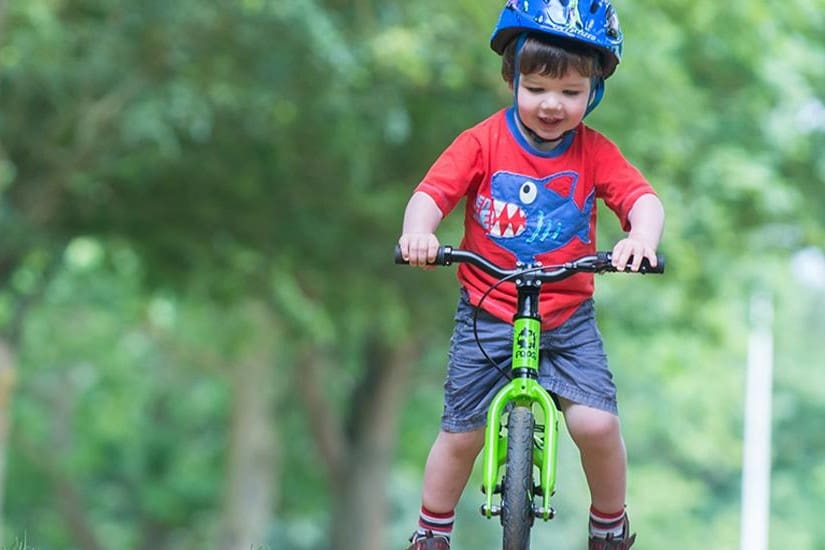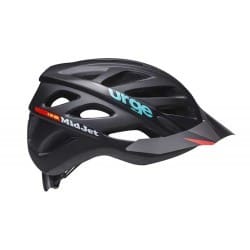Sustainable Bikes, Saddles and Helmets

By Anna Gurnhill
This month we delve further into some industry initiatives that are taking place to help cycling’s contribution to environmental outcomes. This is by no means an exhaustive research or commentary on the many great things happening across this space, but highlights a few sustainable bike, saddle and helmet brands and products.
Bikes
Frog Bikes make a great range of kids’ bikes. The Frog Sustainability Project has recently been funded by the Welsh Government and the European Regional Development Fund to explore ways in which to reduce the carbon emissions of Frog Bikes. The company has received funding and recently advertised for a 12-month position as the ‘Decarbonisation Project Leader’ within their Research and Development team to lead a feasibility study – cool hey!? Frog Bikes is based in the UK and has a strong existing Australian presence.
In their website, www.frogbikes.com they say, “Although the use of bikes is inherently very environmentally friendly, unfortunately, the way that bikes are made and shipped around the world generates far too many emissions…
“We have an ambitious goal of dramatically reducing our carbon emissions through changes to our supply chain and reduced use of raw materials. We want to extend the useful life of our bicycles and their components, bringing the best practices of the circular economy to our supply chain.”
The UKs Ethical Consumer guide provides a scorecard of the ethical and environmental record of 42 leading bike brands. It is noted that this guide is dated August 2018 and there has been a lot of progress among many additional brands since. Some well-known and recognisable brands in the upper echelon of their list include:
- Gazelle
- Kalkhoff
- Raleigh
- Brompton
- Giant
- Trek / Bontrager
Saddles
Saddles – arguably one of the shortest-lived bike parts after tyres. Selle Italia has started manufacturing high-end, Italian-made saddles using sustainable practices, using a mix of technopolymers and constructed without glue. Not only that, but the saddles can also be disassembled and recycled at the end of their lifespan.

Helmets
It wouldn’t seem appropriate to discuss saddles, tyres/tubes (last month) and not another more frequently replaced product, helmets, in the quest for sustainability. Unsurprisingly, yes, there’s plenty of action in this space too, with some interesting initiatives underway, including from Urge (based in both Colorado and Provence, France).
Urge uses recycled PET from plastic bottles to manufacture helmet straps. The helmet shells of Urge’s entire 2019 range are made from recycled expanded polystyrene (EPS), using numerous wastes from the automobile industry. Visors and chin-guards are made from recycled ABS. In their shipping and packaging, Urge uses a recycled box with no varnish, minimal plastic bag use and re-useable protection bags. Each year, 1% of their annual turnover is also donated to associations helping to protect the environment. (Source: Urge and the green walnuts).
There are also ABUS Ecolution/Kranium helmets, made from recycled cardboard based on a honeycomb design.
Urge helmets meet Aus/NZ safety standards. It is unclear whether ABUS helmets do.
How Urge stacks up against important safety innovations such as WaveCel and MIPS has not been assessed. Personally, when it comes to helmets, I’m opting for safety first and hoping that sustainable elements will be incorporated into the designs of helmets using MIPS and WaveCel technologies in the near future.

What Does Sustainability Mean for Retailers?
As always – listen to your customers. Are they seeking a greater commitment from you to supply sustainable products which they can purchase? Are they asking you about it; or are they simply going elsewhere to find it? Even if they’re not asking for it, can you position yourself to help educate them?
You can be sure this is an area that is going to gain popularity as consumers are becoming increasingly conscious of the impact of their behaviour on the world around them – socially and environmentally.
If you know of a great source of sustainability in the industry that isn’t covered here, or has been overlooked, please get in touch with me.
Anna Gurnhill is Managing Director at Anna Gurnhill Consulting which provides a range of professional services in the cycling industry. Key competencies include audience research, content development, editing and copywriting, marketing, business and product development, and strategic partnership development. https://annagurnhillconsulting.com | AnnaGurnhillConsulting@gmail.com | 0400 843 858
